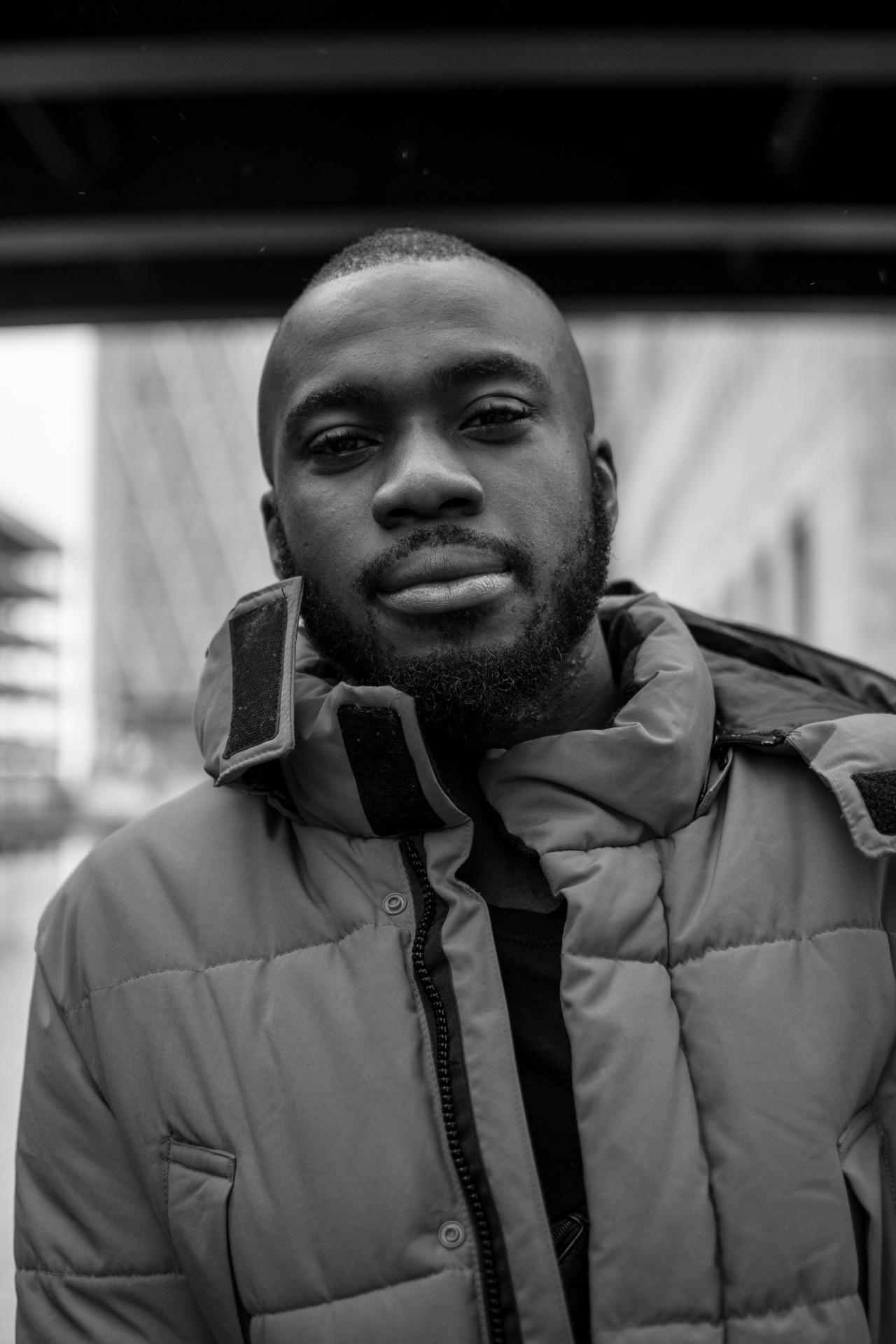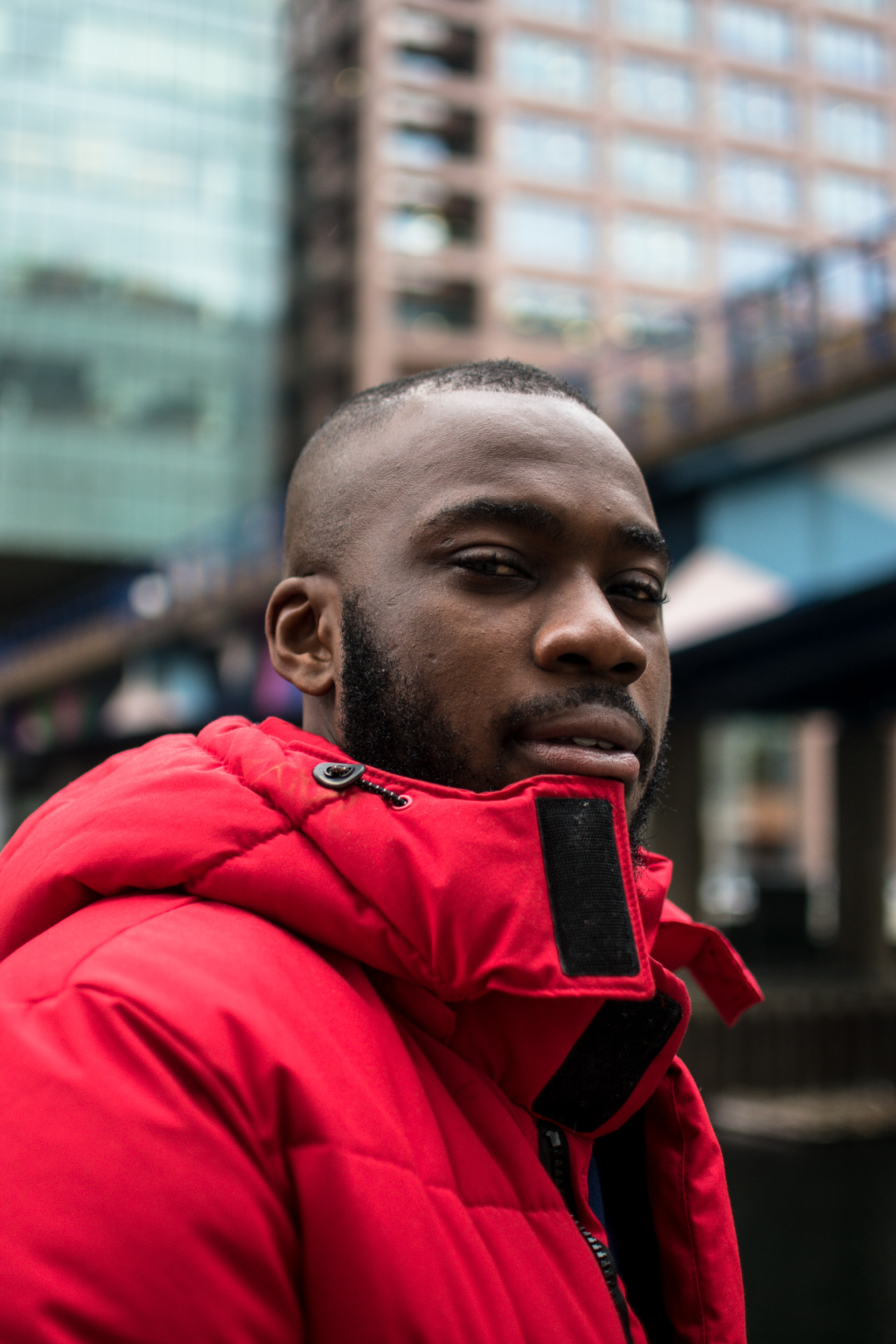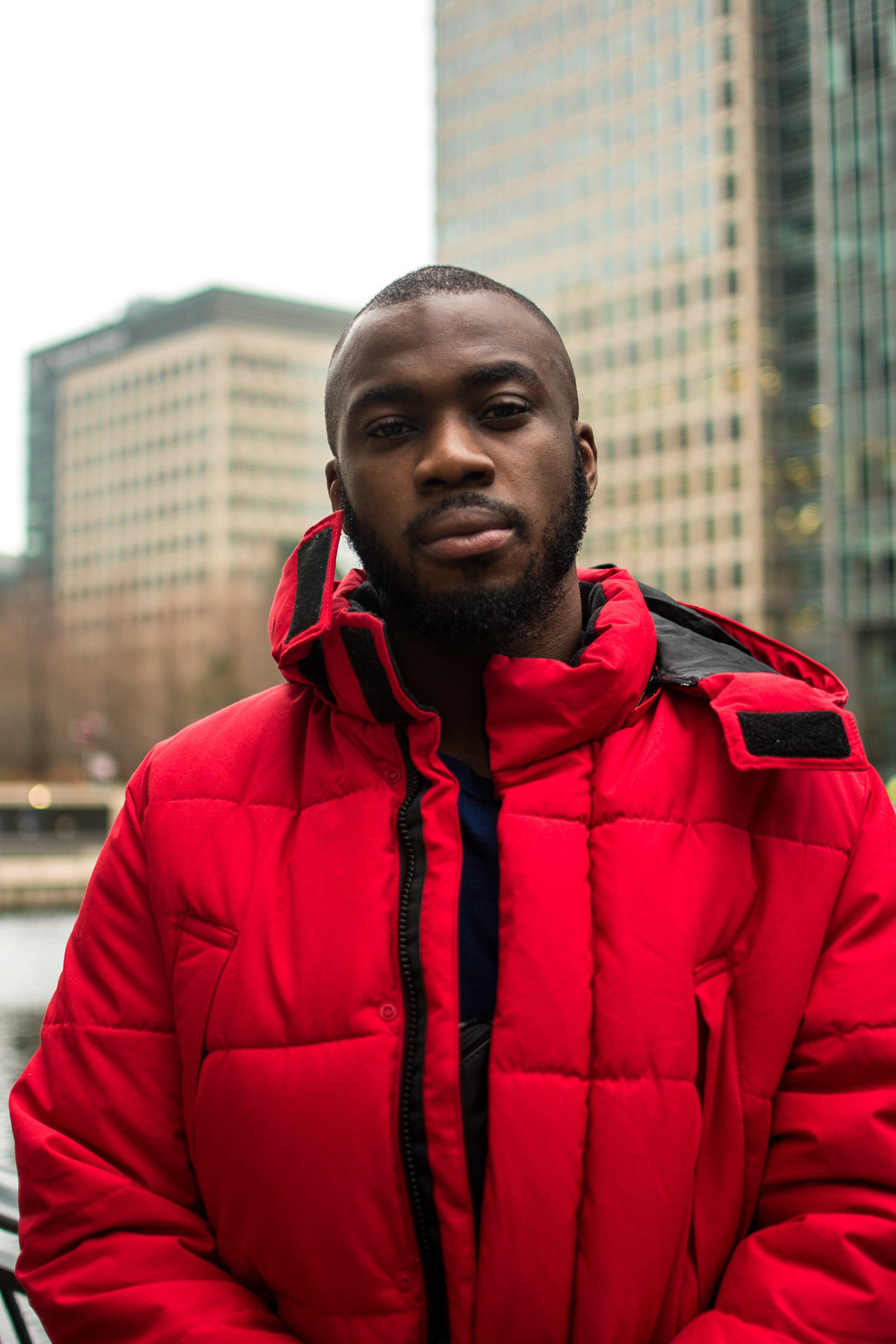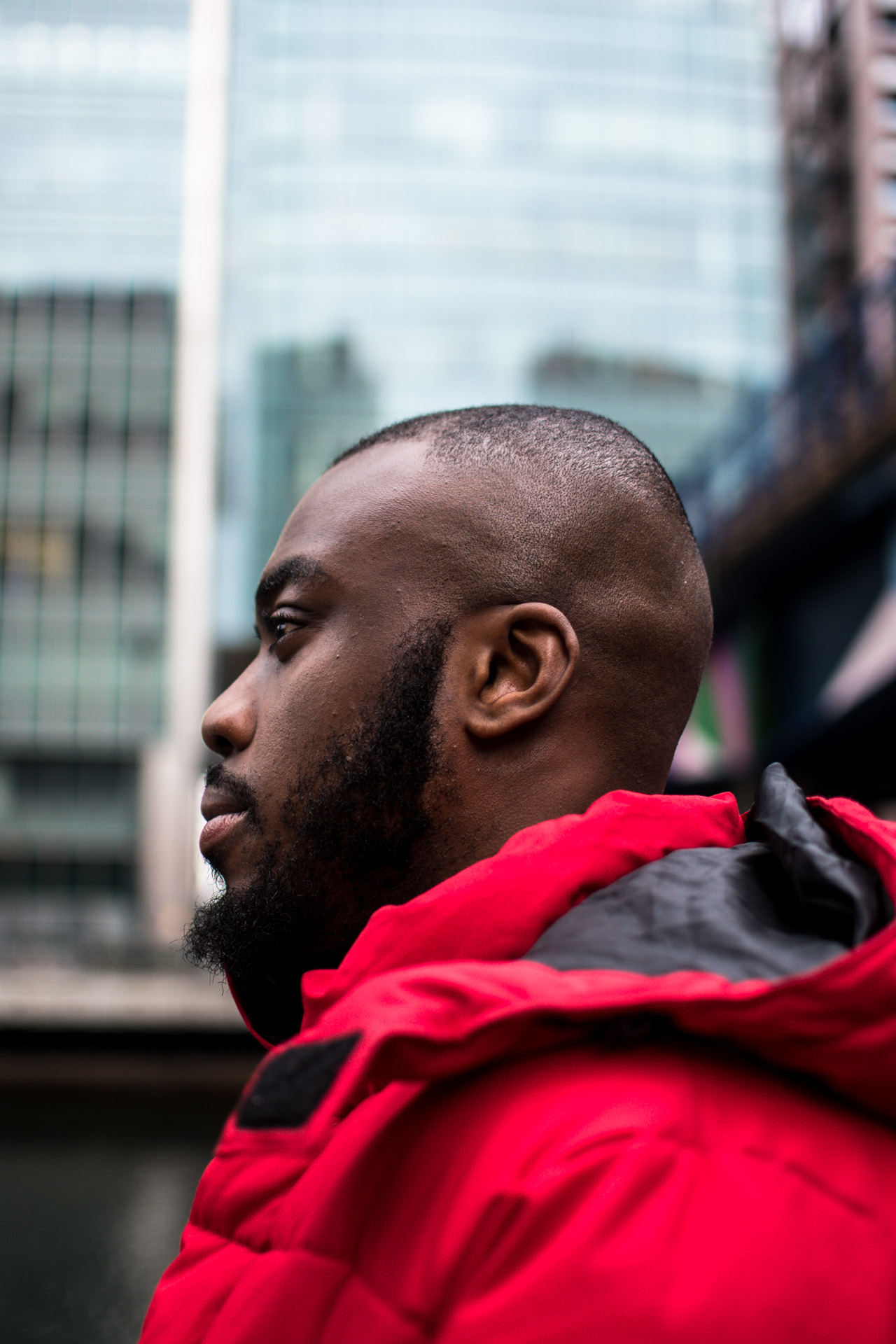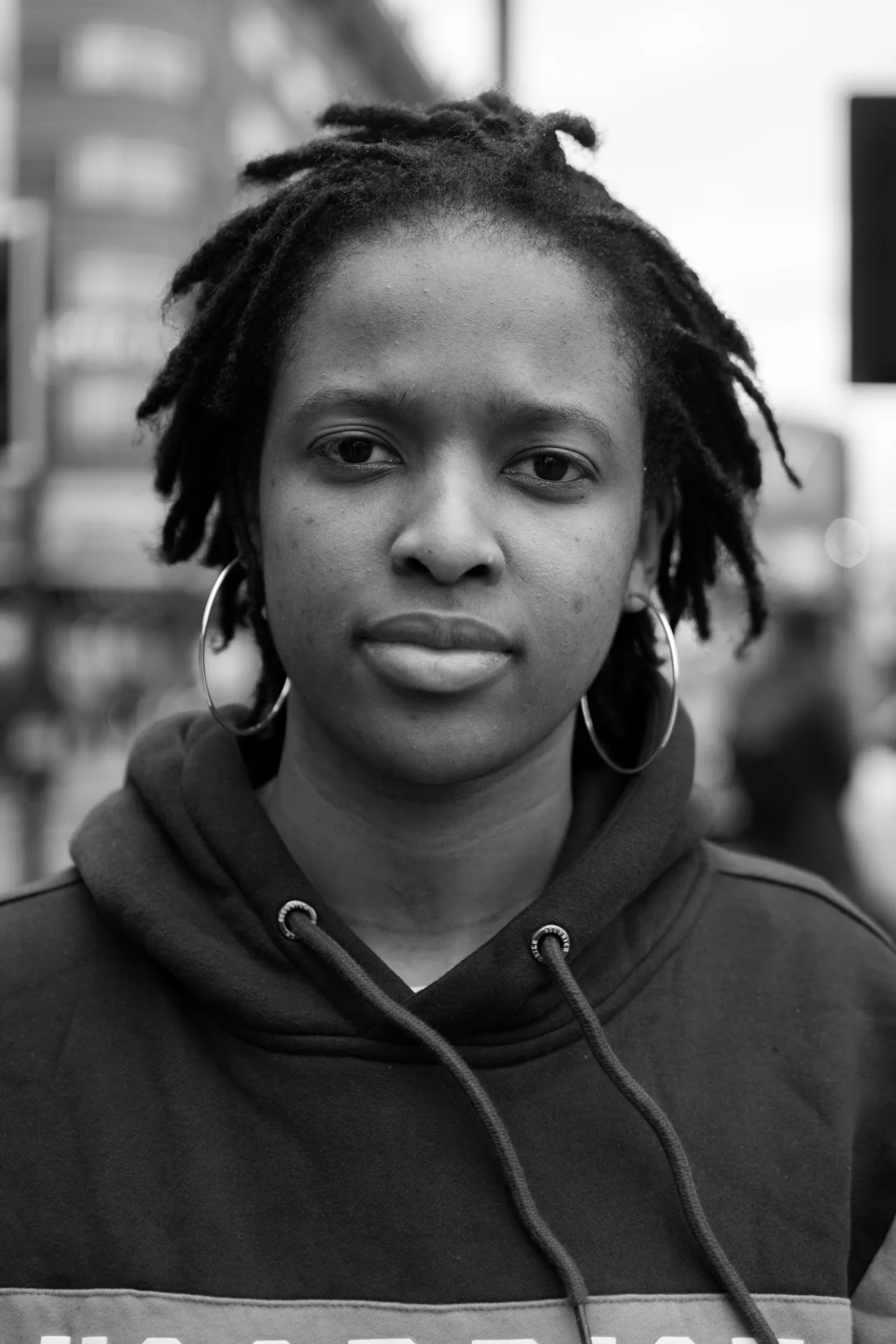Keleenna
Keleenna, 26
Nigerian ethnicity: Igbo
City/County grew up in: Birmingham
City/County of residence: London
*audio below
Describe your heritage
I am a Black British Nigerian. I was born in London to Nigerian parents and I grew up mostly in the UK, but I have spent a lot of time in Nigeria. I was one of those kids that they tried to send back just because I couldn't settle in. So I spent a lot of time in Nigeria, a lot of time in the village, so I think my heritage is very much rooted in [the] UK because I spent most of my time here, but I've been relatively or highly exposed to my Nigerian roots and it's something my parents were very proactive with, even with me understanding Igbo and the language and things like that.
What to you, makes you Black British Nigerian? How do you define it?
I think it does what it says on the tin in a way. That is all aspects of my identity in one phrase. And for me it's interesting as you can break it up in many ways - you can say Black British, and there's that element of Black British culture in the UK from things like grime to street, fashion, and things like that that you grew up with. No matter what country you came from; Jamaican, Ghanaian, just being Black British you're exposed you to a certain culture that is similar. Then I have the Nigerian culture which growing up you eat Nigerian food, you go to Nigerian parties, you wear “funny clothes on the Sunday before you go to church(!), so I have that. Just being British as a whole, things like Brexit, what's going on in parliament and politics, even just softer things like Eastenders, Big Brother - you still somehow relate to that. So I think for me being Black British Nigerian is the ability to move in and out of different cultures and still feel some sort of relation to each aspect of those cultures.
What challenges do you/have you faced that relate to your identity as a Black British Nigerian?
On the one hand I really like the aspect of my identity being, let's call it three different identities in one. It also creates the biggest challenge in terms of you can never really feel 100% in one. I will never feel 100% British, I will never feel 100% Black British, I will never feel 100% Nigerian. So growing up it's hard to accept that. You go to Nigeria, if you have a bit of an English accent, people are [like] "Ah this guy. Johnny Just Come", you have that. You're here, you try and be a bit too Nigerian it's like "Ah guy you're bush, what's going on?" *laughs*. So those little challenges. So I think as much as it is a challenge, there's a way as you grow up and you learn more about yourself and who you are, and you become more comfortable with your identity, the challenge really reduces. So right now I wouldn't say I have any challenges today, but growing up that was probably one of the biggest challenges. It's just trying to see where I fitted in in each of these different cultures, and accepting that I'm not going to be the most Nigerian, I'm not going to be the most British, I'm not going to be the most Black British. I just have to be comfortable with who I am in those different brackets.
What do you love about being Black British Nigerian?
I kind of touched on it in terms of what it means to me. It's like you get the best of multiple worlds. I think the perfect example for me is the World Cup. Starting off in the World Cup I was supporting Nigeria, I have the jersey. As soon as Nigeria gets knocked out I can switch over and start supporting England! So it's a stylised way of putting it, but I think for me that is the best part. There's bad in both countries, but there's also good in both countries and you're able to enjoy the good when it comes from both. You have to work out how to handle the bad which is maybe another challenge which I didn't mention, but for me that's what I love about it. I'm not limited to one culture or one country where good things can happen. [Here] people are united by their identity of being British, being Nigerian. I can tap into it here, I can tap into Nigeria, and for me it doesn't get better than that; that is the best feeling when you feel united with people in happiness in something, and I can do it in two continents.
Do you think this country values your identity?
Personally I don't know if the country values my identity more or less than they value any other Black British person, be it Ghanaian, be it Jamaican. So as a Black British person, there may be elements of that that aren't really valued. For me (and this is something that I've grown into and I've learnt through the challenges that I've had), I don't really care in a way whether people value it or not. For me my identity is for me, it's not really for them. So it's a hard question because it's something I don't really think about. At the end of the day, if I want to be Nigerian, I'm going to be Nigerian today. If I want to be British, I'm going to be British today. Like that's me. So whether you value that or not, it's for your pocket really. But yeah it is a good question, and I do know and I am aware that some people feel like their identity isn't valued here, they maybe feel like their voice isn't as loud as others. I don't disagree and I don't think that doesn't happen, it's just me where my mental space is, I just don't really care about it; it's my identity.
What does the future look like for Black British Nigerians - what are your hopes for us?
For me, I feel like we're really seeing, let me call it a "Black Renaissance" if you like. Not just here, not just in Africa, like in America - Black is really (I don't want to say sexy), but people are really appreciating the beauty behind it, especially in the arts. So I think as a Black British Nigerian, I'm able to tell two stories; I can tell the Black British story, and I can also tell the Nigerian story and I can tap into that. I can tap into the Afrobeats, I can enjoy that and that I think is going to continue to grow. I think maybe the film industry is going to grow in Africa, and those are things I can tap into and I can enjoy and I can relate with people.
I think the wider world will start to recognise more and more that, Black people, Nigerians or Africans as a whole are very very very talented. Moving on from Black Panther, we'll probably see some more things in that space, so I think for me I'm looking forward to that, being able to tap into that. Also in the UK you have a lot of talented people coming up, the music scene here is getting a lot more noticed by brands and companies and things like that, so it's getting pushed. So as a Black British [Nigerian] I think there's going to be more spaces where you can be proud to be Black British because you're going to see more and more faces entertaining the world and telling our story. I mean on the one hand they're entertaining the world, but they're entertaining the world with something you can relate to and for me that is even more powerful than just hearing a nice song from Burna Boy - [that] I can somewhat relate to some of the things he's saying. So I think it's a very exciting time to be a Black British Nigerian because you have two worlds that are really making large leaps forward in terms of recognising them as a force in the arts and even intellectually; some of the conversations that Black people are starting to have, a bit deeper and really exploring our identities, so I'm excited and I think that's going to be good for all of us.
I think the only thing I'm concerned about, and I think we have to be conscious of, is who is in control of the things that are getting out. For example I mean no disrespect to Nike, they have some really good campaigns and things like that, but they're also playing on the fact that Black issues, Black cultural identities and things like that, the whole Colin Kaepernick thing - that sells right now right, and they're realising that there's more purchasing power in the Black communities. So as much as it's nice that they're highlighting our issues, there is the element of playing on it, which is what I haven't come to terms with [in terms of] whether it's good or not, because at the end of the day you want to get your voice heard and you want to get it out there, but at what cost is kind of what I'm thinking. So going forward that will be interesting to see how that pans out, but I'm definitely excited to see what is to come. It's now probably one of the best times to be Black British Nigerian because turn on your TV and you'll see something to be proud of so...we move.


